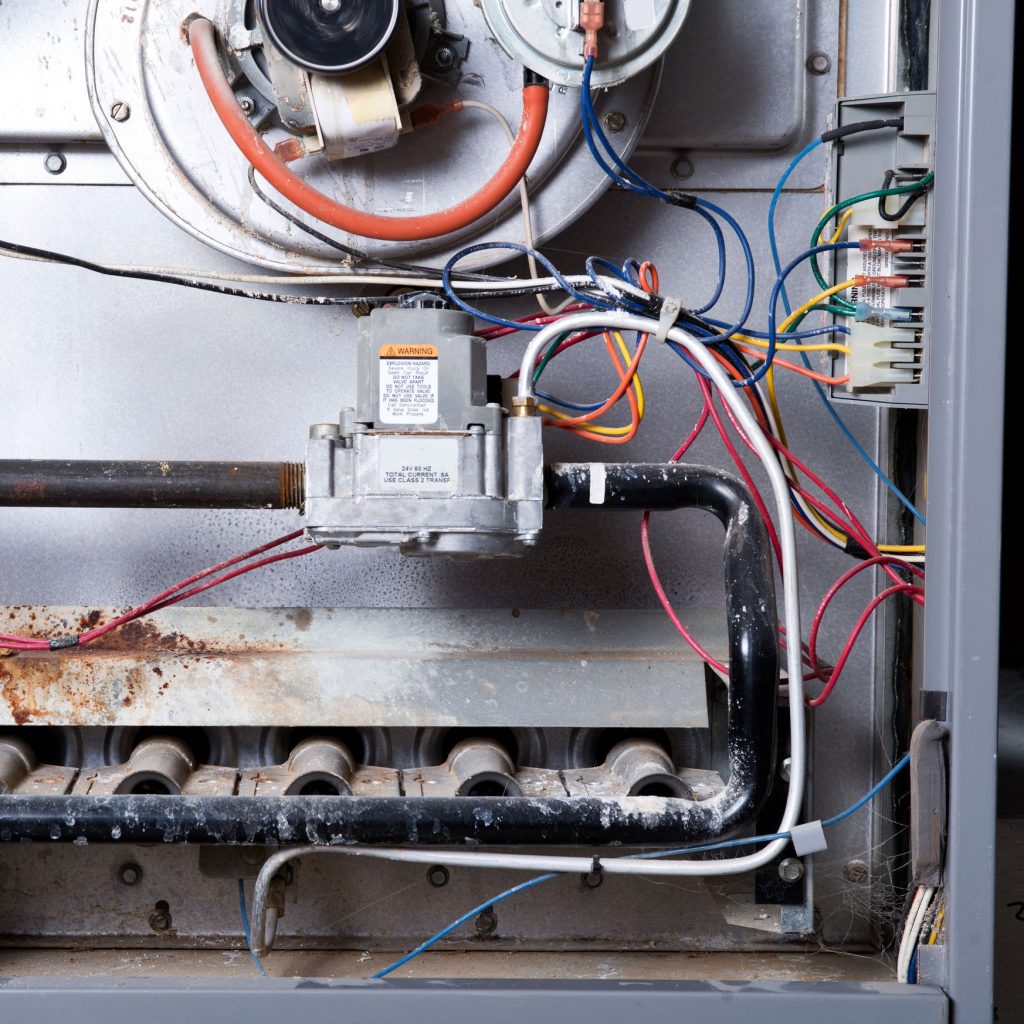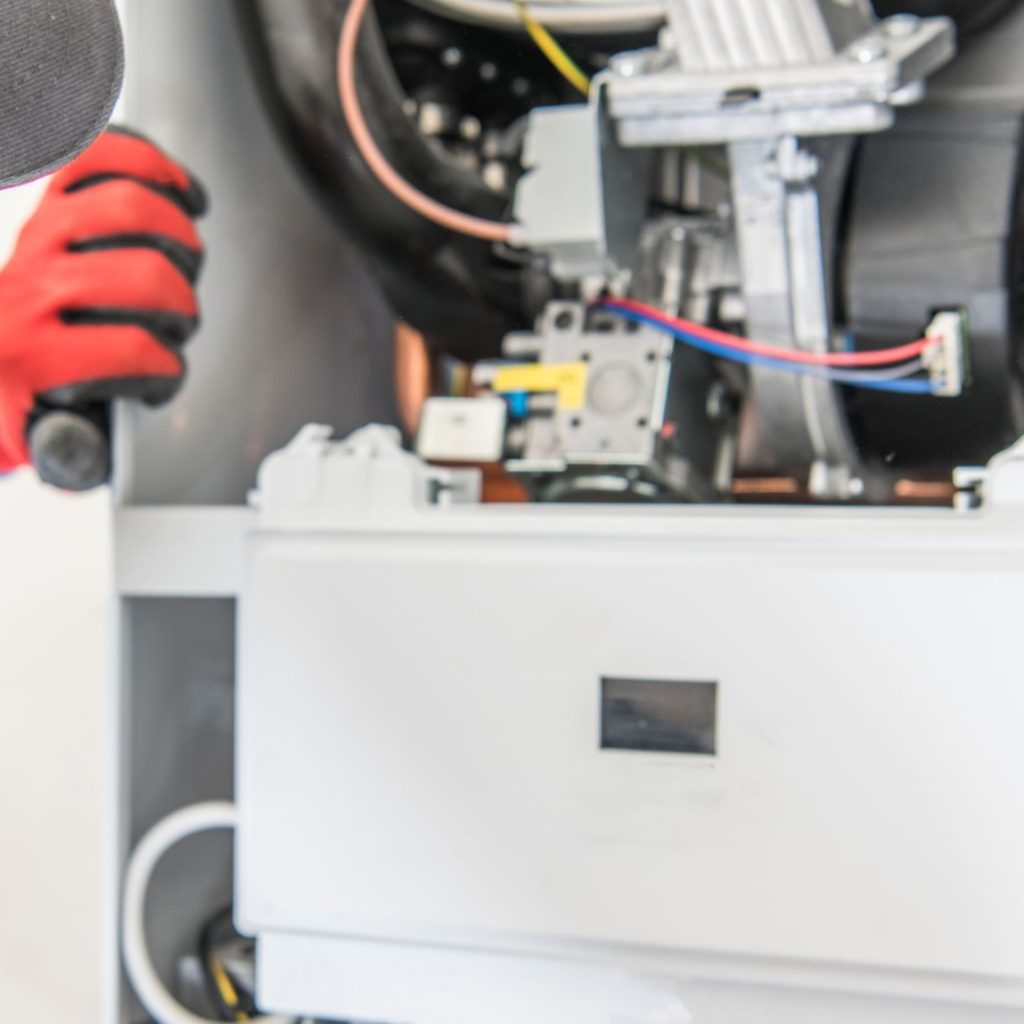
Is it time for a new furnace?
Did you know that if you run your gas furnace without a filter for one night, it won’t hurt the furnace? However, the longer you leave it without a filter, it will collect more contaminants inside the heating unit and its inner mechanisms.
The best part of winter, other than when it is over, is coming into a nice warm house. Whether you have a gas furnace or electric furnace, a warm house in the winter is excellent, but when the furnace isn’t working as it should, it can leave you in the cold. When that happens, it is time to contact a professional gas furnace repair contractor and stat!
To keep from having that happening, it is important to practice regular gas furnace cleaning and inspection year-round. Even when you’re not using your gas furnace, it is still collecting dust along with cobwebs, so cleaning your gas furnace periodically year-round will help in keeping it in good working order.
How do you know if your furnace is dying?
Well, if it isn’t heating your home at all, that would be one sign that it has died. Or, if your gas furnace is short cycling, meaning it turns off and on a lot during a short time without ever heating the house, it could indicate any of the following:
- Air filter clogged – A gas furnace with a clogged air filter will keep the blower fan can’t move air over the heat exchanger, causing it to overheat and trip the fan limiter, which shuts the system down.
- Clogged flue – If the flue or vent pipe is clogged or damaged, the flue limiter shuts down the furnace. This is a protection step to keep the gas furnace from emitting carbon monoxide poisoning.
- Dirty thermocouple – Older gas furnaces have a thermocouple that senses the flames from the burner, allowing the flow of the natural gas. When it is damaged or dirty, the gas valve and furnace off to prevent the accumulation of gas.
- Damaged igniter – If the igniter isn’t working or on an older gas furnace, the pilot light blows out, the furnace shuts down to prevent the accumulation of gas.
- Failed fan limiter – The fan limiter inhibits the heat exchanger from developing hot enough to start a fire, which could damage the heat exchanger that could lead to cracking for carbon monoxide leaks. When this isn’t properly working, the gas furnace shuts off.
- Oversized furnace – Sometimes, bigger is not better, and that could be the case with your furnace. A furnace that is too big for a house will cycle too frequently, and while this isn’t dangerous, it uses more energy, thus costing more.

Do furnaces lose efficiency over time?
A gas furnace ages, it will begin to lose efficiency over time. There are things you can do that will improve the efficiency of your gas furnace, resulting in lower heating bills.
- Clean the filter
- Check for air leaks
- Unblock radiators
- Check for cracks and loose parts
- Weatherize your home for winter
- Check the burner flames
- Inspect the limit switch
- Clear heat pumps
- Check intake and exhaust vents
- Update the heating system
Do high-efficiency furnaces save money?
Definitely! It is estimated that you lose approximately 4 percent of the energy with a top-of-the-line gas furnace, while96% is heating your home. This is a great improvement over gas furnaces of the past.
Should I replace my 30-year-old furnace?
Thirty years is a good lifespan for a gas furnace, no matter what logic you’re told to follow. A furnace may last past that 30th birthday, but it won’t be as efficient as it was at 10-year, 15 years, even 20-year mark. Experts recommend that you should start shopping or a replacement unit at the 15-year mark.
Does a new furnace increase home value?
Probably not, but it won’t hurt either. You shouldn’t expect a large ROI of replacing your gas furnace, but you will gain the benefit that buyers like to hear the words “new roof”, “new carpet”, “new furnace”, etc. If there are houses similar to yours on the market, the same time yours is having that “new furnace” could be what grabs that buyer.
Electric Furnace or Gas Furnace
Wrapping up this piece, we will list the pros and cons of an electric furnace and a gas furnace:
Electric Furnace Pros
- Cheaper $2,000 to $4,000
- Easier installation and maintenance
- Safer
- Quieter
- Lasts up to thirty years
Electric Furnace Cons
- Fuel costs higher
- Less efficient
Gas Furnace Pros
- Fuel costs lower
- Lifespan 20 years
- Heat efficiency higher
Gas Furnace Cons
- More expensive $3,000 to $7,000
- Installation complicated
- Carbon monoxide concerns
- Regular maintenance by professional required
- Louder
Using the information that we’ve provided in this piece can help you in choosing your next furnace or getting the most out of your current gas furnace. The important thing is to make sure you have the safest means of heat while being energy efficient for the environment and your budget. When it is time for a new furnace in Orange, CA, the experts at Elite HVAC are here to help! Call us today at (714) 464-6622!
